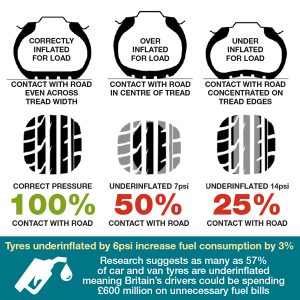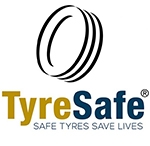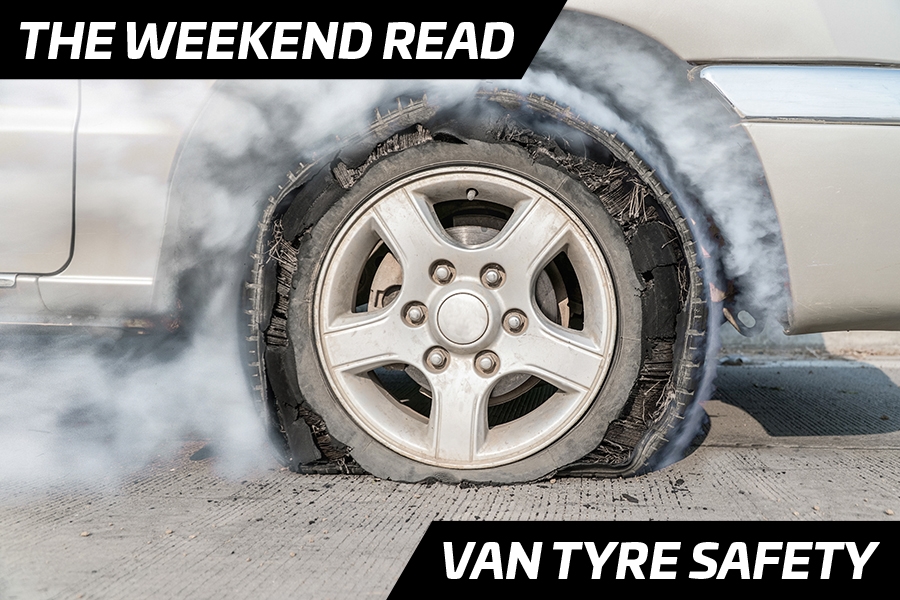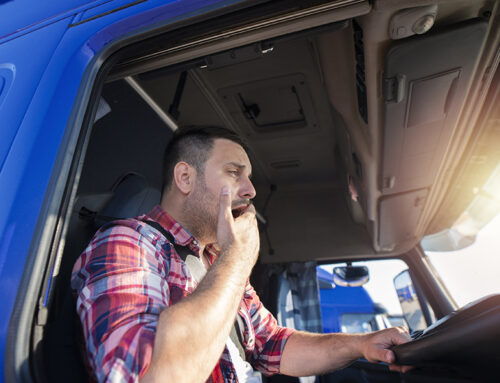Tyres on vans and light commercial vehicles (LCVs) lead a hard life, carrying loads or doing multiple drops, often in tough working environments. Rough ground or repeated kerb scuffing can cause levels of damage and wear way beyond that of a car tyre. As a critical vehicle component, it’s important to carry out regular checks on vans of all ages to make sure the tyres remain safe and legal.
There are now more than four million vans on Britain’s roads, 60% more than in 2000, and they clock up over a billion miles a week. According to the SMMT, they deliver £56 billion in wages to the UK economy.
With costs like fuel rapidly rising, businesses face increasingly tight margins and can ill afford the impact of any tyre-related problems such as vehicle downtime, missed appointments or repair costs. Regular checks can prevent these problems helping businesses to save time and money.
Van operators and business owners have a duty of care to their drivers and must ensure they are provided with a safe working environment, which includes the provision of safe and roadworthy vehicles. Since the Health and Safety Offences Act came into force in January 2009, UK courts have greater authority to prosecute businesses for committing offences such as running illegal tyres or faulty brakes. The maximum penalty has increased from £5,000 to £20,000.
Equally, van drivers have a duty of care to ensure their vehicle is safe and roadworthy. Drivers found to be driving on illegal tyres face personal fines of up to £2,500 and three penalty points for each illegal tyre, irrespective of whether the van is company owned or not.
TyreSafe, the UK’s tyre safety charity yesterday launched a new campaign focusing on van tyre safety at its annual Briefing at St George’s Park, home of the National Football Centre. The campaign aims to remind the UK’s van operators and drivers that ‘Britain works on tyres’ and the need for them to ensure they conduct regular checks and consider how much load is being carried and avoid overloading.
Whether a mobile workshop, business, courier’s workhorse or delivery wagon, vans place high demands on their tyres.
Overloading is the most common offence identified at DVSA roadside checks and can result in fines of over £800. Overloading also accounts for 70% of prohibitions on LCVs – removing vans from the road.
 Overloading might not only interrupt a van’s daily schedule, it’s also dangerous. If the van is heavier than it was designed for, it’ll be unstable and puts extra stress on your tyres. The excess weight changes the tyre’s shape, leading to a build-up of heat when it’s being driven. When that happens, the tyre can have a catastrophic failure.
Overloading might not only interrupt a van’s daily schedule, it’s also dangerous. If the van is heavier than it was designed for, it’ll be unstable and puts extra stress on your tyres. The excess weight changes the tyre’s shape, leading to a build-up of heat when it’s being driven. When that happens, the tyre can have a catastrophic failure.
A van’s maximum permissible weight is detailed in the handbook, along with the tyres’ appropriate load index. This is a two or three digit code which relates to how much weight it can safely carry. You should always ensure your tyres have the right load index for the van.
Tyre pressure must also be correctly adjusted for the load. It’s not only safer but reduces fuel consumption and CO2 emissions, which is good for business and the environment. Tyre pressures might also be displayed inside the fuel filler cap or on a plate on the front door sill.
While those are being checked, attention should also be paid to the tyres’ general condition. Most vans encounter the odd pot hole or bump in their travels, and these can seriously damage tyres. Each tyre should be inspected for lumps, cuts or anything out of the ordinary which, if discovered, should be inspected by a professional.
We’re grateful to the DVSA for sharing its data and case studies with us and underlining how overloading is far too common on our roads. TyreSafe hopes that by sharing this message with van drivers we can help affect a change in attitude among them to consider their safety, and the safety of others, on the roads as their first priority.
Please download the TyreSafe Van Tyre Safety leaflet and share it with your van drivers.
Britain Works on Tyres but those tyres need regular maintenance.

Stuart Jackson
Chairman, TyreSafe

TyreSafe provide van drivers, fleet managers and workshop managers with top tips for ensuring correct van tyres maintenance.
Useful Links:





